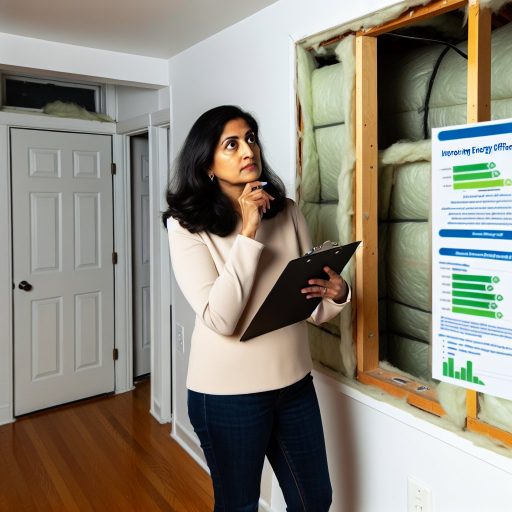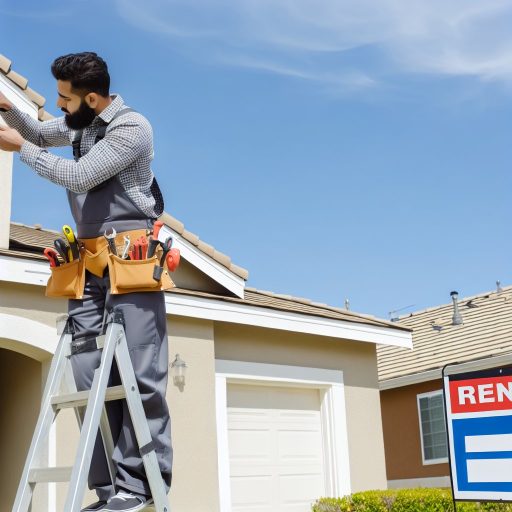Understanding Lease Agreements: Key Definitions and Components
Definitions of Lease Agreements
A lease agreement is a legal contract between a landlord and a tenant.
This document details the terms and conditions of the rental arrangement.
It serves as a protection for both parties involved.
Essential Components of Lease Agreements
Lease agreements typically include several key components.
First, they identify the parties involved in the lease.
This often includes the landlord, the tenant, and any co-signers.
Next, lease agreements specify the rental property address.
This ensures clarity about the location being rented.
The lease must outline the rental amount and payment terms.
These details clarify how much the tenant must pay and when.
Another crucial component is the lease duration.
This defines how long the tenant will occupy the property.
It may be a fixed-term lease or a month-to-month agreement.
Rights and Responsibilities
The lease should clearly state the rights of the tenant.
For example, it often includes information about privacy and access.
Furthermore, the lease outlines the landlord’s responsibilities.
These might include maintaining the property and ensuring habitability.
Importantly, the lease should state what happens in case of termination.
This includes notice periods and possible fees for breaking the lease.
Additional Considerations
Some lease agreements may include additional provisions.
For instance, they may cover pet policies or maintenance procedures.
It is essential to understand local laws regarding lease agreements.
Different states have different legal requirements.
Finally, both parties should review the lease thoroughly.
They should ensure all terms are understood before signing.
Types of Lease Agreements: Residential vs. Commercial Properties
Understanding Residential Lease Agreements
Residential leases primarily focus on living spaces.
They typically cover apartments, houses, and other dwellings.
Tenants usually rent these properties for residential purposes.
Renters often sign agreements for a specific duration.
This duration can range from a few months to several years.
Additionally, residential leases specify rent amount and payment terms.
They also detail maintenance responsibilities for both parties.
Common clauses include security deposits and rules on subletting.
Furthermore, residential agreements must comply with local housing laws.
Exploring Commercial Lease Agreements
Commercial leases apply to business properties.
These properties can include office spaces, retail locations, and warehouses.
Renting under a commercial lease often involves longer terms.
Lessee responsibilities may include more than just rent payments.
For instance, they might be responsible for property improvement costs.
Additionally, commercial leases can vary significantly in terms and conditions.
They may include clauses for property taxes and maintenance obligations.
Notably, commercial leases often demand more negotiation between parties.
Key Differences Between Residential and Commercial Leases
One major difference lies in their purpose.
Residential leases cater to individual living spaces.
In contrast, commercial leases accommodate business operations.
Furthermore, the legal framework governing each type differs.
Residential laws are designed to protect tenants primarily.
Commercial laws focus on business interests and negotiations.
Moreover, lease terms vary significantly in duration and complexity.
Choosing the Right Lease Type for Your Needs
Determining the right lease depends on your goals.
Consider the type of property you need.
Evaluate your financial capabilities and business plans.
Ultimately, understanding your lease options is crucial.
Consulting with legal specialists can also prove beneficial.
Essential Clauses in Lease Agreements: What to Include
Introduction to Lease Agreements
Lease agreements create the framework for rental relationships.
They define rights and responsibilities for both landlords and tenants.
Understanding essential clauses ensures smooth property management.
Basic Information
The lease should clearly state the names of all parties involved.
Identify the property address and description accurately.
Include a start date and, if applicable, an end date for the lease.
Payment Terms
Clearly outline the rental amount due each month.
Specify payment methods accepted by the landlord.
Include provisions for late fees if payment deadlines are not met.
Security Deposits
Clearly state the amount of the security deposit required.
Outline the conditions for returning the deposit after the lease ends.
Additionally, clarify how security deposit deductions will be handled.
Maintenance Responsibilities
Clearly define maintenance duties for both parties.
Landlords should state the specifics of property upkeep.
Tenants must understand their responsibilities for repairs.
Rules and Regulations
Detail any property rules that tenants must follow.
Include restrictions on alterations to the rental unit.
Specify policies regarding pets, guests, and common areas.
Termination Clauses
Outline the process for terminating the lease agreement.
Specify notice periods required for both tenants and landlords.
Include conditions under which early termination is permitted.
Legal Considerations
Ensure the lease complies with local and state laws.
Consider including a clause regarding dispute resolution.
Both parties should review the lease with legal counsel before signing.
Explore Further: Social Media Advertising Tips for Marketing Rental Properties Online
The Role of Security Deposits in Lease Agreements
Definition of Security Deposits
A security deposit is a sum of money held by a landlord as protection against potential damages.
It serves as a financial safeguard during the lease term.
This deposit is typically payable before the tenant occupies the unit.
Landlords often require this payment to mitigate risks associated with tenant behavior.
Purpose and Importance
Security deposits fulfill several key functions in lease agreements.
First, they provide security for the landlord against unpaid rent.
Second, they cover costs related to repairs for any damage beyond normal wear and tear.
Moreover, deposits encourage tenants to maintain the property in good condition.
They create an environment of shared responsibility between landlords and tenants.
State Regulations and Requirements
Each state has different laws regarding security deposits.
Some states limit the amount a landlord can charge.
For example, many states allow a maximum deposit equal to one month’s rent.
Additionally, landlords must often return the deposit within a set timeframe.
This timeframe varies by state, from 14 to 60 days after lease termination.
Documentation and Record-Keeping
Proper documentation of security deposits is essential for both parties.
Landlords should provide written receipts to tenants upon payment.
This establishes proof of the transaction and the deposit amount.
Furthermore, it’s vital for landlords to maintain detailed records of any deductions made.
Clear communication regarding repairs or cleaning costs prevents disputes.
Refunding Security Deposits
Upon lease termination, the refund process must follow specific guidelines.
Landlords should inform tenants of any deductions and provide itemized statements.
Remaining funds should be returned quickly to avoid potential legal issues.
Failure to comply with refund regulations can lead to disputes or legal action.
Tenants should also understand their rights regarding the return of their deposit.
Find Out More: How to Write Compelling Rental Listings That Attract Quality Tenants
Common Lease Agreement Mistakes and How to Avoid Them
Not Reading the Entire Agreement
Many tenants fail to read their lease agreements thoroughly.
This mistake can lead to misunderstandings and disputes.
Always take the time to read every clause carefully.
Doing so helps you understand your rights and responsibilities.
Ignoring Local Laws and Regulations
Lease agreements must comply with local laws.
Ignoring these regulations can create legal issues.
Stay informed about relevant housing laws in your area.
Consider consulting a legal expert for clarification.
Failing to Document Conditions
Property condition should be documented before moving in.
Failure to do this can result in disputes over security deposits.
Take photos or videos of the property upon arrival.
Share these with your landlord for mutual agreement.
Not Asking Questions
Tenants often hesitate to ask questions about the lease.
This can lead to confusion and acceptance of unfavorable terms.
Always ask for clarification on any points you don’t understand.
A good landlord will appreciate your desire for clarity.
Overlooking Maintenance Responsibilities
Lease agreements specify maintenance responsibilities.
Understanding these responsibilities is essential to avoid issues.
Review maintenance clauses thoroughly and ask questions.
This prepares you for unexpected repair costs.
Assuming Oral Agreements Are Binding
Many assume verbal agreements are enforceable.
This is a common misconception that can lead to problems.
Always get agreements in writing to avoid misunderstandings.
This protects both parties involved in the lease.
Not Considering Length of Lease
Lease length affects your living situation significantly.
Shorter leases offer flexibility, while longer ones provide stability.
Evaluate your circumstances before agreeing to a term.
Consider your future plans and lifestyle changes.
Neglecting to Review Renewal Clauses
Renewal clauses can significantly impact your lease experience.
Many tenants fail to read and understand these clauses.
Review the terms carefully before signing.
Clarify how rent increases or automatic renewals work.
Skipping the Security Deposit Clause
The security deposit clause is crucial in lease agreements.
Many tenants overlook the specific terms related to deposits.
Understand how much is required and the conditions for return.
This knowledge helps prevent potential disputes at move-out.
Delve into the Subject: Best Practices for Handling Security Deposit Disputes

Negotiating Lease Terms
Understanding the Basics
Negotiating lease terms involves clear communication between property managers and tenants.
Both parties should be aware of their rights and responsibilities.
This ensures an effective negotiation process.
Key Considerations for Property Managers
Property managers need to understand market trends.
Keeping abreast of local rental rates helps in negotiations.
Additionally, being transparent about property features is crucial.
This builds trust and promotes a positive atmosphere.
Essential Points for Tenants
Tenants should prepare by researching local rental conditions.
Understanding their budget helps to set realistic expectations.
They should also list any specific needs before negotiations.
Listening actively during discussions fosters a collaborative environment.
Common Lease Terms to Negotiate
Several lease terms are often negotiable.
- Rent amount
- Lease duration
- Security deposit
- Maintenance responsibilities
- Utilities included in rent
Each of these terms can significantly impact the living experience.
Strategies for Successful Negotiation
Effective negotiations require preparation and flexibility.
Both parties should remain open to compromise.
Using a friendly tone fosters better communication.
Additionally, detailing concerns helps clarify misunderstandings.
Documenting the Agreed Terms
Once terms are negotiated, documenting them is essential.
A written agreement protects both parties’ interests.
Both the property manager and tenant should review the lease carefully.
Ensuring clarity on all terms prevents disputes later on.
Learn More: Property Inspections for First-Time Landlords
Legal Compliance in Lease Agreements
Understanding State-Specific Regulations
Each state has its own regulations governing lease agreements.
These regulations can significantly influence lease documentation.
Property managers must familiarize themselves with local laws.
Failure to comply can lead to serious legal consequences.
Key Components of State Regulations
Every state outlines specific requirements for lease agreements.
Important aspects include rental terms and security deposits.
Additionally, states may regulate eviction processes.
Understanding these components is crucial for compliance.
Residential vs. Commercial Leases
Residential leases often have stricter regulations than commercial ones.
Landlords must understand these differences to avoid pitfalls.
For instance, many states have laws regarding rent control for residential leases.
In contrast, commercial leases offer more flexibility.
Fair Housing Requirements
All lease agreements must comply with federal fair housing laws.
This includes non-discrimination based on race, color, or religion.
State laws may impose additional protections for tenants.
Property managers should stay informed about these regulations.
Important Compliance Steps
- Review state laws regularly to remain updated.
- Incorporate legal experts in lease preparation.
- Document all communications with tenants clearly.
- Provide tenants with lease copies upon signing.
Resources for Compliance Assistance
Numerous resources exist to aid property managers in compliance.
State housing authorities often provide valuable information online.
Additionally, professional property management associations can offer guidance.
Utilizing these resources helps ensure adherence to regulatory standards.
Documenting Lease Agreements: Best Practices for Property Managers
Understanding the Importance of Proper Documentation
Proper documentation forms the backbone of effective property management.
It protects both property owners and tenants from misunderstandings.
Moreover, it can serve as vital evidence in disputes.
Structuring the Lease Agreement
A well-structured lease agreement simplifies understanding and compliance.
It should clearly outline the terms and conditions of the lease.
Consider incorporating the following key elements:
- Property details, including address and type.
- Lease duration and renewal terms.
- Rent amount and payment deadlines.
- Security deposit requirements.
Using Clear Language
Clarity in language is essential in legal documents.
Avoid jargon that may confuse tenants.
For instance, use straightforward terms for legal obligations.
Additionally, provide definitions for any complex terms.
Ensuring Compliance with Local Laws
Every state has unique laws governing lease agreements.
Be sure to include provisions that comply with state regulations.
For example, adhere to tenant protection laws and eviction procedures.
Understanding local laws prevents costly legal issues.
Documenting Tenant Information
Tenant information is crucial in lease agreements.
Collect and document the following:
- Names of all adult tenants.
- Contact information for each tenant.
- Emergency contact details.
This information enhances communication and accountability.
Addressing Maintenance and Repairs
Clearly outline maintenance and repair responsibilities.
Specify who is responsible for common issues like plumbing and heating.
Additionally, include procedures for reporting maintenance problems.
Including Conditions for Termination
Conditions for lease termination must be explicit in the agreement.
Include notice requirements for both tenants and landlords.
Moreover, specify any penalties for breaking the lease early.
Reviewing and Updating the Agreement
Regular reviews of lease agreements ensure they remain relevant.
Update the document to reflect changes in laws and policies.
Furthermore, communicate any changes to tenants promptly.




